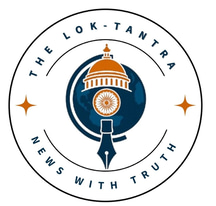Jammu and Kashmir Assembly Elections 2024: A Milestone in the Region's Political History
NEWS
9/24/2024
The Jammu and Kashmir Assembly elections of 2024 are a watershed moment in the region's political narrative, as the first such election held since the abrogation of Article 370 in August 2019. These elections are seen as pivotal for reestablishing democratic governance in Jammu and Kashmir (J&K) and integrating the region more fully into India's federal political framework.
Voter Enthusiasm in Phase 1
The first phase of the elections, held on September 18, 2024, saw a promising voter turnout of 61.38%, a positive indicator of the population's engagement with the electoral process. The Election Commission reported that male voters constituted 63.75% of the turnout, with 58.96% of female voters participating. Additionally, the third-gender turnout was recorded at 40%, marking a notable inclusion in this electoral process.
In terms of district-wise participation, Kishtwar district led with a remarkable 78.24% voter turnout, followed by Doda at 72.49% and Ramban at 69.67%. South Kashmir's districts also saw high levels of participation, with Kulgam reporting 63.44%, though Anantnag lagged behind at 45.62%. Other districts such as Shopian and Pulwama recorded 58.51% and 50.78% turnouts, respectively, indicating a steady, if regionally varied, engagement.
A Test for Security and Governance
The conduct of elections in Jammu and Kashmir has always been a delicate affair, given the region's history of conflict and insurgency. In 2024, the first phase of elections was largely peaceful, with no major incidents of violence reported, thanks to the tight security arrangements. Authorities took extensive measures to ensure a smooth polling experience, deploying security forces in vulnerable areas and monitoring the situation closely.
For the central government, particularly the ruling Bharatiya Janata Party (BJP), this election is seen as a referendum on the decision to revoke the state's special status under Article 370 and bifurcate it into two Union Territories—Jammu & Kashmir and Ladakh. The BJP is campaigning on a platform of development, stability, and integration, hoping to capitalize on the infrastructural and administrative reforms introduced post-2019.
The Major Players
Several political heavyweights and regional parties are in the fray, making this election a high-stakes battle. The National Conference (NC), led by Omar Abdullah, and the People’s Democratic Party (PDP), under Mehbooba Mufti, are leading the charge for restoring J&K's statehood and special status. Both leaders have been vocal in their criticism of the BJP-led central government's policies in the region. Meanwhile, the BJP, under the leadership of Prime Minister Narendra Modi, is working to consolidate its position and gain a significant foothold in the region by focusing on security, development, and integration.
Other regional players such as the Apni Party, led by Altaf Bukhari, are also attempting to carve out their space in the political landscape, with a focus on pragmatic solutions for governance rather than polarizing issues like statehood and special status.
Political Landscape and Regional Aspirations
The 2024 elections come at a time when the aspirations of the people of Jammu and Kashmir are complex and varied. In the Jammu region, the BJP is expected to perform well due to its strong support base among the Hindu-majority population. In contrast, Kashmir Valley, where the electorate is predominantly Muslim, will likely see a tough contest between the traditional regional parties like NC and PDP, who have historically dominated the area.
These elections also represent a test of India's commitment to democratic governance in Kashmir, especially after years of political uncertainty following the dissolution of the state assembly in 2018 and the imposition of President’s Rule. For voters in the Valley, issues like restoration of statehood, employment, education, and security remain central concerns.
Upcoming Phases and Counting
The election will be conducted in three phases, with the second phase set for September 25 and the third phase on October 1, 2024. Each phase will cover different regions, ensuring that all constituencies across Jammu and Kashmir have the opportunity to vote. The counting of votes will take place on October 8, and the final results are expected to shape the region's political future, offering a glimpse into how people perceive the central government's policies since 2019.
Conclusion: A Democratic Test for the Future
As the first Assembly elections in Jammu and Kashmir after the abrogation of Article 370, the 2024 elections are of monumental importance. For the residents of Jammu and Kashmir, these elections are not just about choosing their next representatives but also about deciding the future direction of the region’s political and social landscape. The outcomes will have implications not just for local governance but also for the broader question of how democracy functions in a region recovering from decades of conflict and constitutional change.
